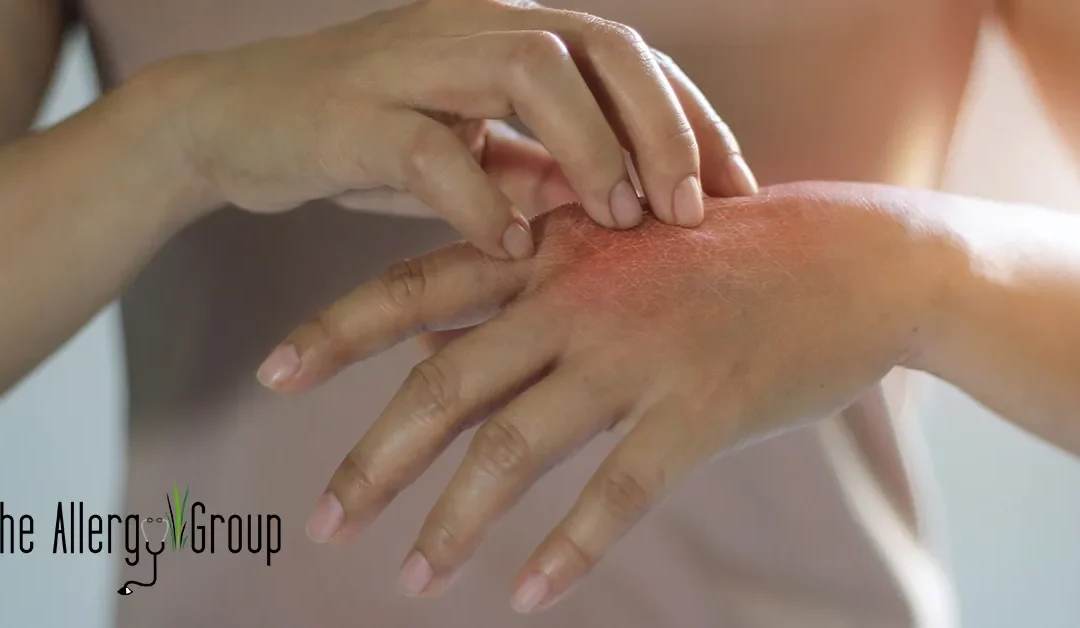Eczema is a non-contagious, chronic, inflammatory skin condition characterized by redness, severe itching, oozing, and scaly rashes. It is also known as atopic dermatitis. Eczema varies from person to person and occurs in many different forms. It is prevalent in people of all ages but is primarily seen in children. It affects over 30 million people in the US.
There is no definite treatment for eczema. However, self-care measures and treatments can relieve the symptoms and prevent new outbreaks.
What is the cause of Eczema?
Healthy skin retains moisture and protects you from germs, irritants, and allergens. Eczema is considered to happen when the skin barrier becomes “leaky” or weak. Leaky skin can be caused by:
- Defect in genes
- Environmental factors
Fault in the gene called Filaggrin causes moderate to severe eczema. Normally every skin cell has 2 copies of the Filaggrin gene. But people who are prone to eczema have only one copy of this gene. Filaggrin is important for the normal functioning of the skin as a barrier. A person with only one copy of the filaggrin gene may have reduced the ability to repair the skin barrier once it is exposed to irritants.
Exposure to detergents, soaps, dust mite, pollen, animal dander and some bacteria, which has proteins called “proteases” can all flare up eczema. Proteases disrupt the links between the skin cells and make them leaky.
Which factors can increase the risk of having eczema?
Eczema can occur with or without the risk factors listed below. However, the higher the risk factors, the greater is the likelihood of developing eczema. Risk factors may include:
Genetic Factor
If parents have allergic disorders like asthma, hay fever or eczema
Mother’s Age
Children born to older women are more likely to develop eczema
Environment
Children are at higher risk of having eczema if they:
- Belong to higher social class
- Live in urban areas with a high level of pollution
- Live in colder regions
The Role of Triggers/Allergens in Eczema
Triggers are environmental factors that can worsen the symptoms of eczema. Triggers itself cannot cause eczema. The most common triggers for eczema are those substances that usually may irritate the skin, like:
- Dust and sand
- Soaps and cleansers
- Makeup
- Perfume
- Solvents
- Chlorine
- Irritants in the environment
- Cigarette smoke
Certain conditions can also lead to a flare because they affect the immune system. Conditions that can trigger a flare may include:
- Bacterial infection
- Cold or flu
- Allergic reaction to mold, pollen, or pet dander
- Stress
Conditions and actions that cause the skin to dry out can also trigger flares. Some examples may include:
- Being too hot or too cold
- Sweating and then becoming chilled
- Prolonged exposure to water
- Taking a too long or too hot shower
- Low humidity in the winter
- Living in a dry climate
- Not using a skin moisturizer after a bath
Can an Allergic Reaction Cause Eczema?
Eczema is not caused by an allergic reaction. However, symptoms of eczema can worsen or flare up when you are around things that can lead to an allergic reaction. Also, many children who have eczema also suffer from food allergies, but that doesn’t mean that allergic foods can cause eczema. Therefore, before eliminating the particular food from your child’s diet, always talk to your allergy specialist so that your child’s nutritional needs are not compromised.


